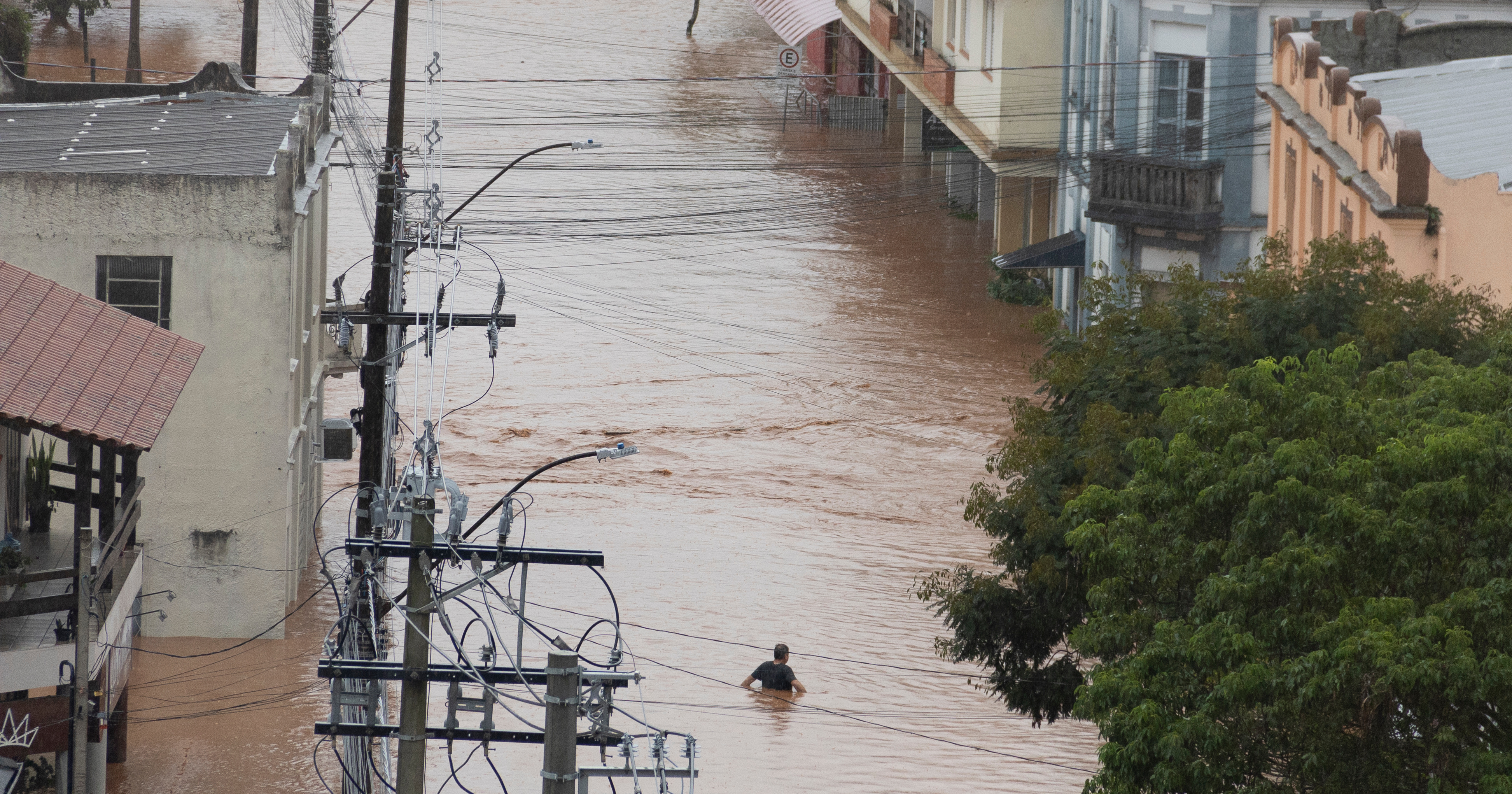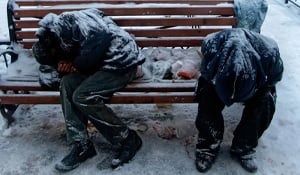Are you prepared for the next disaster? Read this checklist!
While this hurricane season has been milder than anticipated, we’re witnessing a new era of disaster—one in which they’re more frequent, more intense, and less predictable. That’s why it’s more important than ever to stay prepared year-round.

Prepare for Each Possible Disaster
As you are putting together your checklist, it’s important to identify what types of disasters might happen in your area and learn how to protect yourself from each.
- Does your household know what alerts or sirens occur in your community during disasters?
- Keep the National Weather Service on your devices to see active alerts. Also, have a battery-operated radio on hand to access these alerts.
- Create a list of local organizations and first responders with information on how to contact them. Keep this list in an area everyone in your household can access.
Create a Disaster Plan

Put together multiple disaster plans for your family based on the type of disaster and location. This ensures a plan is in place depending on whether household members are at home, work, school, or somewhere else.
- What responsibilities will each household member have?
- How will you get out of your house in case of a fire?
- Where will you meet? Pick a location inside your home, close to your home, and somewhere outside your neighborhood or city if you cannot return home. Determine what type of disaster applies to each meeting place.
- Does every household member know where emergency and disaster supply kits are kept?
- If anyone in your household has special needs, ensure they are covered in the plan.
- Include pets in your supply kit and your disaster planning.
Create a Communication Plan
- If a household member is frequently traveling, determine how to stay in communication.
- Ensure members of your household have a saved emergency contact list. Memorize the most important numbers.
- Ensure members of your household know how to dial 911 or use the emergency feature on their mobile devices.
Assemble a Disaster Supply Kit

Pack your supply kit in something easy to carry, such as a backpack or duffel bag. This should be prepared in advance, and you should check your supplies every few months.
- One gallon per person per day.
- Three-day supply per person.
- Portable water filter or filtration straw.
- Non-perishable or canned food, approximately 1,500 calories per day per person, enough for seven days.
- Food for the elderly or infants.
- Latex Gloves
- Gauze
- Band-Aids
- Antiseptic Wipes
- Soap
- Eye Wash Solution
- Scissors
- Medical Adhesive Tape
- Pain Relievers: Ibuprofen, Acetaminophen, Aspirin
- Tweezers
- Sharp Scissors
- Safety Pins
- Thermometer
- Face Masks
- Escape Ladder
- Compass
- Fire Extinguisher
- Toilet Paper, Towelettes, Sanitizer, Soap, Detergent
- Storage Containers, Garbage Bags, Zip Ties
- Pencil and Paper
- Hygiene Items and Feminine Supplies
- Battery-Powered Radio
- Flashlight
- Extra Batteries
- Candles
- Matches in a Waterproof Container
- Whistle
- Multi-Function Tools
- Manual Can Opener
- Duct Tape
- Two-Way Radio
- Blankets, Pillows, Sleeping Bags
- Rain Gear
- Towels
- Closed-Toe Shoes
- Coat
- Rain Gear
- Important Personal Identification Documents and Medical Records (Store in Waterproof and Portable Containers)
- Prescriptions
- Medical Supplies
- Glasses or Extra Contact Lenses and Supplies
- Books, Games, Cards, and Puzzles
- Extra Cash
- Local Maps
- Cell Phone and Charger
- Infant and Small Children’s Needs
- Extra Clothing
- Seven-Day Food and Water Supply
- Food Dishes
- Medications
- Disposable Litter Trays and Litter
- Collar or Harness and Leash
- Blankets and Toys
- Pet Carrier
- Medical and Vaccination Records
- Veterinarian Information with Emergency Contact
- Pet First Aid Kit
Practice, Practice, Practice
You know what they say, practice makes perfect. Hold a household meeting to practice your disaster plans at least every six months to make sure everyone understands what to do.
- Practice different disaster scenarios and go to your appointed meeting places.
- Practice communication scenarios with and without phone or internet access.
- Regularly check emergency contact information and update as needed.
- Replace water and food every three months.
- Practice first aid and CPR.
- Ensure all household members know how to shut off utilities.
- Review how to use fire extinguishers and where they are kept.
How we help Disaster Relief
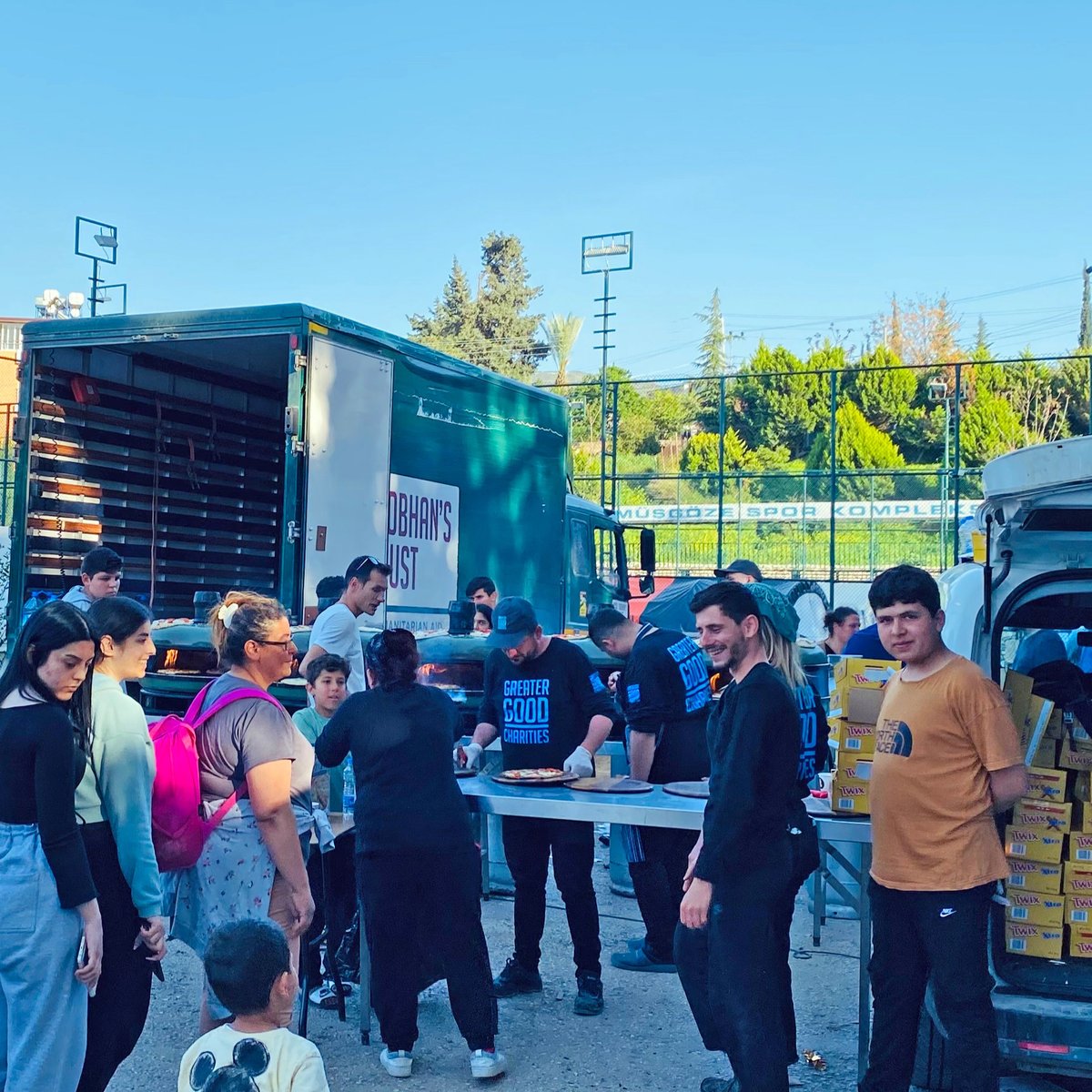
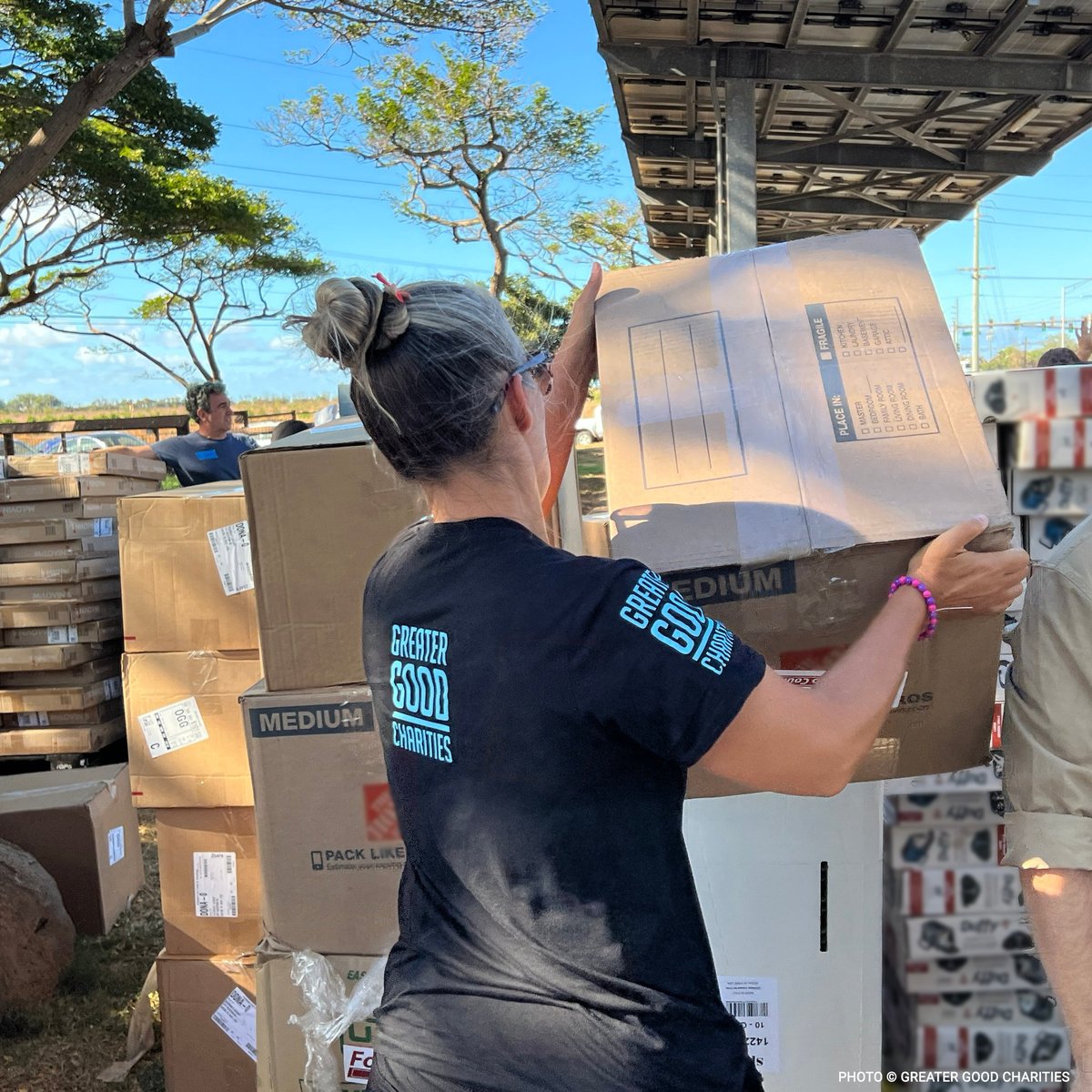


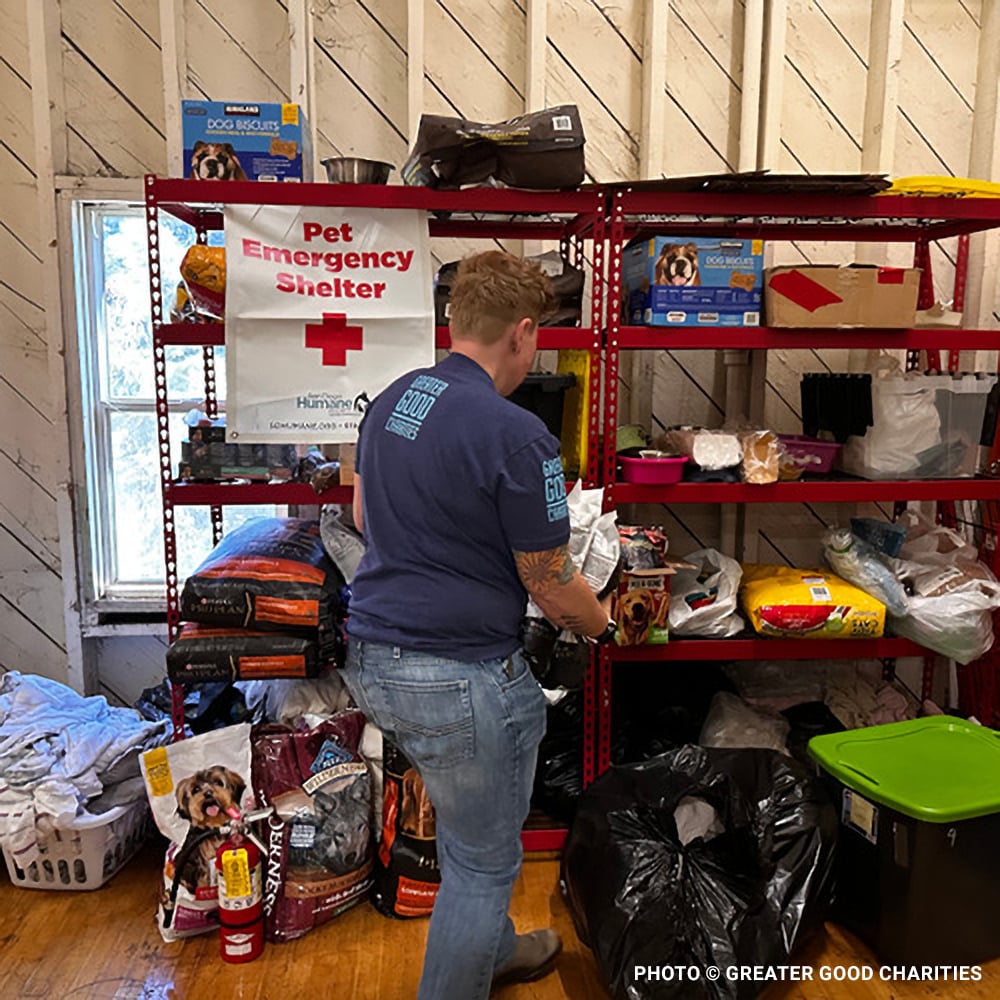
When it comes to natural or human-made disasters, Greater Good Charities is There When It Matters®.
Our Relief Packs include disaster preparedness necessities and are deployed before, during, and after a crisis.
The increase in natural disasters has caused hundreds of thousands of people to flee their homes with just the clothes on their backs. Imagine being forced to evacuate your household, leaving everything behind.
Emergency supply packs provide respite in times of crisis. Help a person in need today. $50 provides a pack to a person in need.


